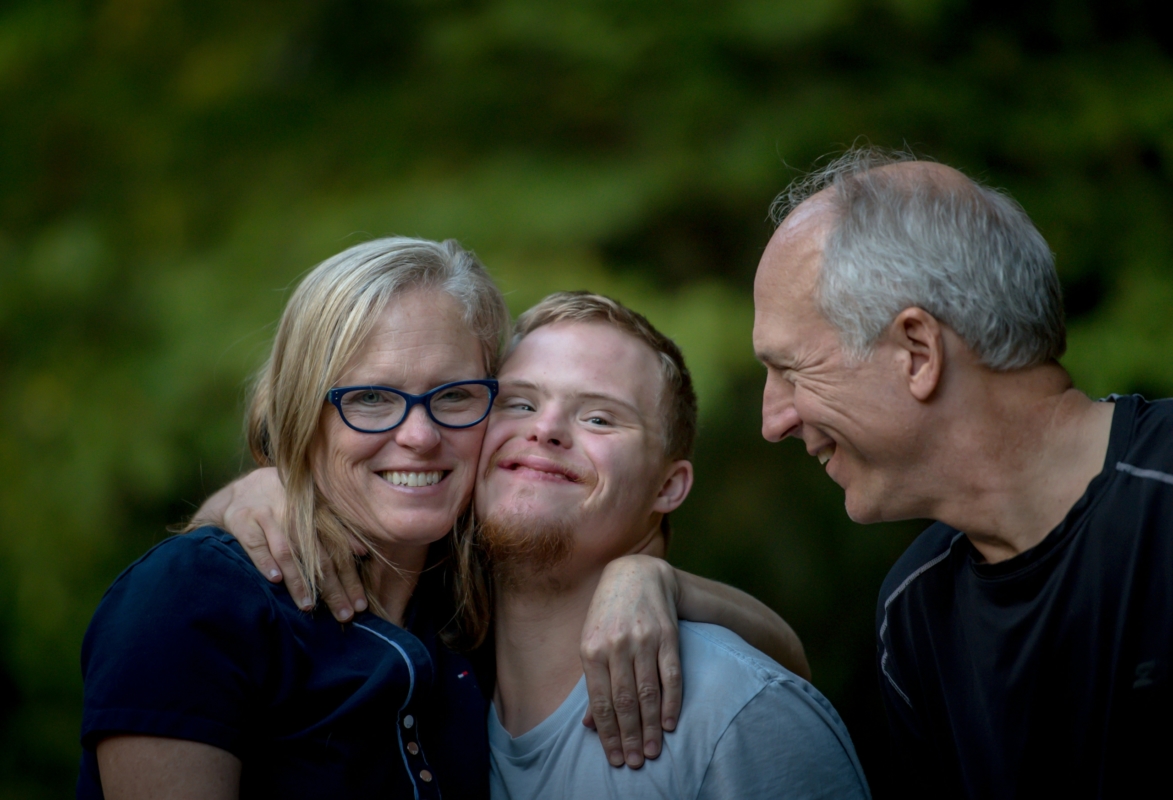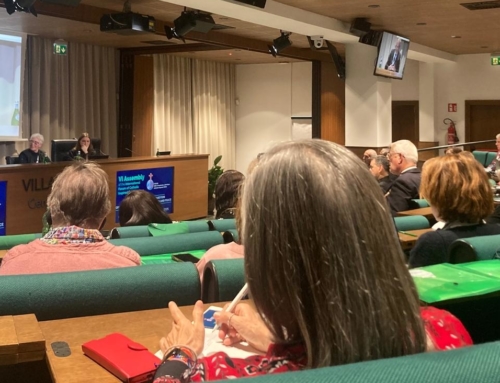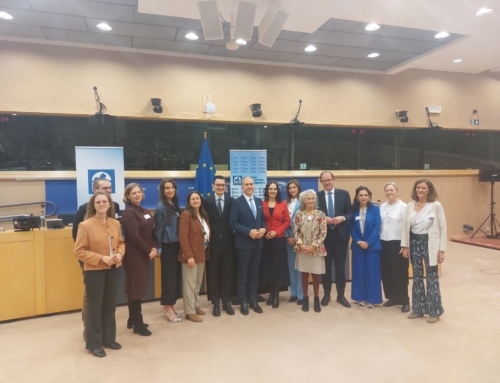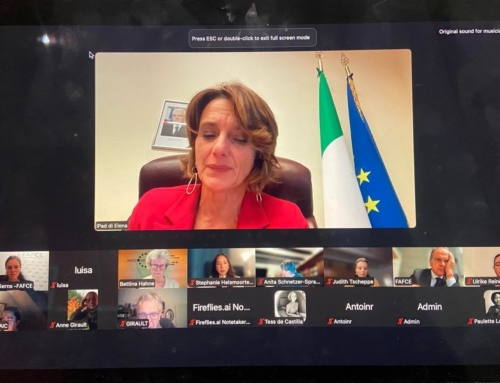Brussels, 29th October 2024
The Synod Report was published on October 26th. Synthesising the discussions held during the whole month in Rome, the Report features many commentaries relevant to the family and the areas of FAFCE’s work. This includes human dignity, the common good, integral ecology, intergenerational solidarity, the youth, rural and remote areas, and providing alternatives to the pandemic of loneliness and consumerism.
Please note that the below is not an official Vatican translation. The original Italian version is available on the Synod website and other language versions are due to be published in the coming days.
“Despite the fractures and sufferings that families encounter, they remain places where we learn to exchange the gifts of love, trust, forgiveness, reconciliation, and understanding. It is within the family that we learn we all share the same dignity, that we are created for reciprocity, that we need to be heard and are capable of listening, discerning together, exercising authority motivated by charity, sharing responsibility, and accountability. The family humanises people through the relationship of ‘we’ and, at the same time, promotes the legitimate differences of each person” (35).
“The synodal way of living relationships is a social witness that responds to the human need to be welcomed and feel recognised within a concrete community. It is a challenge to the growing isolation of people and cultural individualism, which even the Church has often absorbed, and calls us to mutual care, interdependence and co-responsibility for the common good. Likewise, it challenges an exaggerated social communitarianism that suffocates people and does not allow them to be subjects of their own development. The willingness to listen to all, especially the poor, stands in stark contrast to a world in which the concentration of power cuts off the poor, the marginalised, minorities and the earth, our common home. Synodality and integral ecology both take the perspective of relationships and insist on the necessity of caring for links: for this reason they correspond and complement each other in the way the mission is lived. complement each other in the way of living the mission of the Church in the contemporary world” (48).
“Rooted in this dynamic are the evils that afflict our world, starting with from wars and armed conflicts, and from the illusion that a just peace can be achieved by the force of arms. Equally deadly is the belief that all of creation, even people, can be exploited at will for profit. The consequence of this is the many different barriers that divide people, even in Christian communities, and limit the possibilities of some compared to those enjoyed by others: the inequalities between men and women, racism, the caste division, the discrimination of people with disabilities, the violation of the rights of minorities of all kinds, the unwillingness to accept migrants. Also the relationship with the earth, our sister and mother (cf. LS 1), bears the signs of a fracture that jeopardises the lives of countless communities, particularly in the most impoverished regions, if not of entire peoples and perhaps of humanity as a whole. The most radical and dramatic closure is that in the towards human life itself, leading to the rejection of children, from the womb onwards, and of the elderly” (54).
“Within the Christian community, special attention must be paid to children: they not only need to be accompanied in the adventure of growing up, but they have much to give to the community of believers. When the apostles discuss among themselves who is the greatest, Jesus puts a child at the centre, presenting him as the criterion for entering the Kingdom (cf. Mk 9:33-37). The Church cannot be synodal without the contribution of children, bearers of a missionary potential to be valorised. Their voice is necessary to the community: we must listen to it and commit ourselves so that everyone in society listens to it, especially those with political and educational responsibilities. A society that does not know how to welcome and care for children is a sick society; the suffering that many of them suffer from war, poverty and abandonment, abuse and trafficking is a scandal that requires the courage of denunciation and the commitment of solidarity” (61).
“Young people also have a contribution to make to the synodal renewal of the Church. They are particularly sensitive to the values of fraternity and sharing, while reject paternalistic or authoritarian attitudes. Sometimes their attitude towards the Church is sometimes presented as a criticism, but often takes the positive form of a personal commitment to a welcoming community committed to the Church, committed to fighting against social injustice, and to the care of the common home. The request to ‘walk together in daily life’, put forward by the young people in the Synod dedicated to them in 2018, corresponds exactly to the horizon of a synodal Church. For this reason, it is essential to provide them with a caring and patient accompaniment; in particular, the proposal, which emerged thanks to their contribution, of ‘an experience of accompaniment in view of discernment’, involving fraternal life shared with adult educators, an apostolic commitment to be lived together in the service of the most needy; an offer of spirituality rooted in prayer and sacramental life (cf. Final Document of the 15th Ordinary General Assembly of the Synod of Bishops, ‘Youth, Faith and Vocational Discernment’, 161)” (62).
Married couples “possess their own special gift within the people of God, in their state and rank in life. Marriage entrusts a particular mission that involves family life, the building up of the Church, and a commitment to society. Families are not merely recipients of pastoral care but active participants. For this reason, they need opportunities to meet and network, supported by Church institutions dedicated to the education of children and young people” (64).
“The experience of rootedness must come to terms with profound changes socio-cultural changes that are altering the perception of place. The concept of place can no longer be understood in purely geographical and spatial terms, but evokes in our time belonging to a network of relations and to a culture whose territorial roots are more dynamic and flexible than ever before. Urbanisation is one of the main factors in this change: today, for the first time in human history, the majority of the world’s population lives in urban settings. Large cities are often human agglomerations without history or identity in which people live like islands. Traditional territorial ties change their meaning, making the boundaries of parishes and dioceses less defined. The Church is called to live in these contexts, rebuilding community life, giving a face to anonymous realities and weaving fraternal relations. To this end, in addition to valorising the structures that are still suitable, missionary creativity is needed that explores new forms of pastoral care and identifies concrete pathways concrete paths of care. However, it remains true that rural realities, some of which are true existential peripheries, should not be neglected and require specific pastoral attention, as do the places of marginalisation and exclusion” (111).
“The Church, at the local level and in its Catholic unity, proposes itself as a network of relationships through which circulates and is promoted as the prophecy of the culture of encounter, of social justice, of the inclusion of marginalised groups, of fraternity between peoples, of care for the common home. The concrete exercise of this prophecy calls for the goods of each Church to be shared in a spirit of solidarity, without paternalism and welfarism, respecting different identities and in the promotion of healthy reciprocity, with a commitment – where necessary – to heal the wounds of memory and to embark on paths of reconciliation. The exchange of gifts and sharing resources between local churches from different regions foster the unity of the Church, creating bonds between the Christian communities involved. It is necessary to focus on the conditions to be ensured so that the Presbyters who come to the aid of clergy-poor Churches are not just a functional remedy but a resource for the growth of the Church that sends them and the one that receives them. Similarly it is necessary to work to ensure that economic aid does not degenerate into welfarism, but promotes evangelical solidarity and are managed in a transparent and reliable manner” (121).
“In addition to specifically pastoral environments and resources, the Christian community is present in numerous other training institutions such as schools, vocational training, the university, training for social and political commitment, the world of sport, music and of art. Despite the diversity of cultural contexts, which determine very different practices and traditions, Catholic-inspired training institutions are often in contact with people who do not frequent other ecclesial environments. Inspired by the practices of synodality, they can become a laboratory of friendly and participative relations, in a context where the witness of life, skills and educational organisation are mainly lay and involve families as a priority. In particular, schools and universities of Catholic inspiration play an important role in the dialogue between faith and culture and in moral education values, offering a Christ-oriented education, the icon of life in its fullness. When they succeed in doing so, they prove capable of promoting an alternative to the dominant models, often inspired by individualism and competition, thus also assuming a prophetic role. In some contexts, they are the only environment in which children and young people come into contact with the Church. When inspired by intercultural and interreligious dialogue, their educational action is also appreciated by people of other religious traditions as a form of human promotion” (146).







